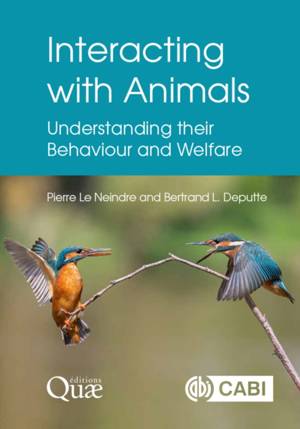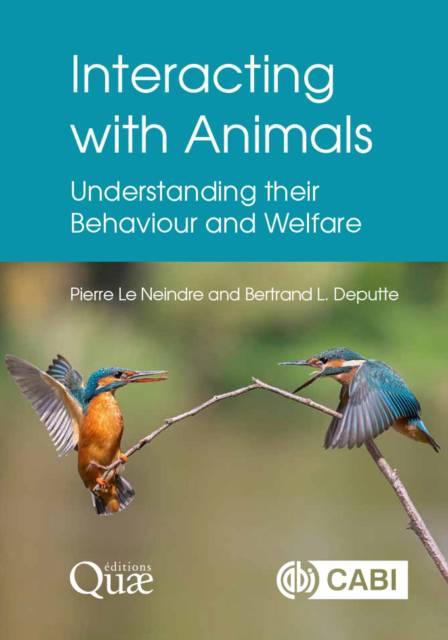
Bedankt voor het vertrouwen het afgelopen jaar! Om jou te bedanken bieden we GRATIS verzending (in België) aan op alles gedurende de hele maand januari.
- Afhalen na 1 uur in een winkel met voorraad
- Gratis thuislevering in België
- Ruim aanbod met 7 miljoen producten
Bedankt voor het vertrouwen het afgelopen jaar! Om jou te bedanken bieden we GRATIS verzending (in België) aan op alles gedurende de hele maand januari.
- Afhalen na 1 uur in een winkel met voorraad
- Gratis thuislevering in België
- Ruim aanbod met 7 miljoen producten
Zoeken
Interacting with Animals
Understanding Their Behaviour and Welfare
Pierre Le Neindre, Bertrand Deputte
Paperback | Engels
€ 70,45
+ 140 punten
Uitvoering
Omschrijving
Animal behavior and welfare is an increasingly complex area of study, with the diversity of the animal kingdom ensuring there is no one, easy answer. Instead, it requires us to take a holistic approach combining scientific principles with both philosophical and ethical considerations to develop all-inclusive policies and legislation that decide how society should interact with domestic, farm, and native animals. With a focus on domestic animals, but with references to wild species to reinforce the arguments made, this book:
- considers the concept of consciousness, how it can be assessed, and how it relates to suffering and animal welfare more widely;
- emphasizes the need to better understand how animals behave both in relation to and outside of human influence, considering the diversity of behavior and sensorial capacities across species;
- includes author expertise across a wide range of animal species, from primates to domestic farm animals, and across living situations from intensive to free-ranging.
Specificaties
Betrokkenen
- Auteur(s):
- Uitgeverij:
Inhoud
- Aantal bladzijden:
- 120
- Taal:
- Engels
Eigenschappen
- Productcode (EAN):
- 9781800622395
- Verschijningsdatum:
- 17/01/2023
- Uitvoering:
- Paperback
- Formaat:
- Trade paperback (VS)
- Afmetingen:
- 152 mm x 229 mm
- Gewicht:
- 226 g

Alleen bij Standaard Boekhandel
+ 140 punten op je klantenkaart van Standaard Boekhandel
Beoordelingen
We publiceren alleen reviews die voldoen aan de voorwaarden voor reviews. Bekijk onze voorwaarden voor reviews.












